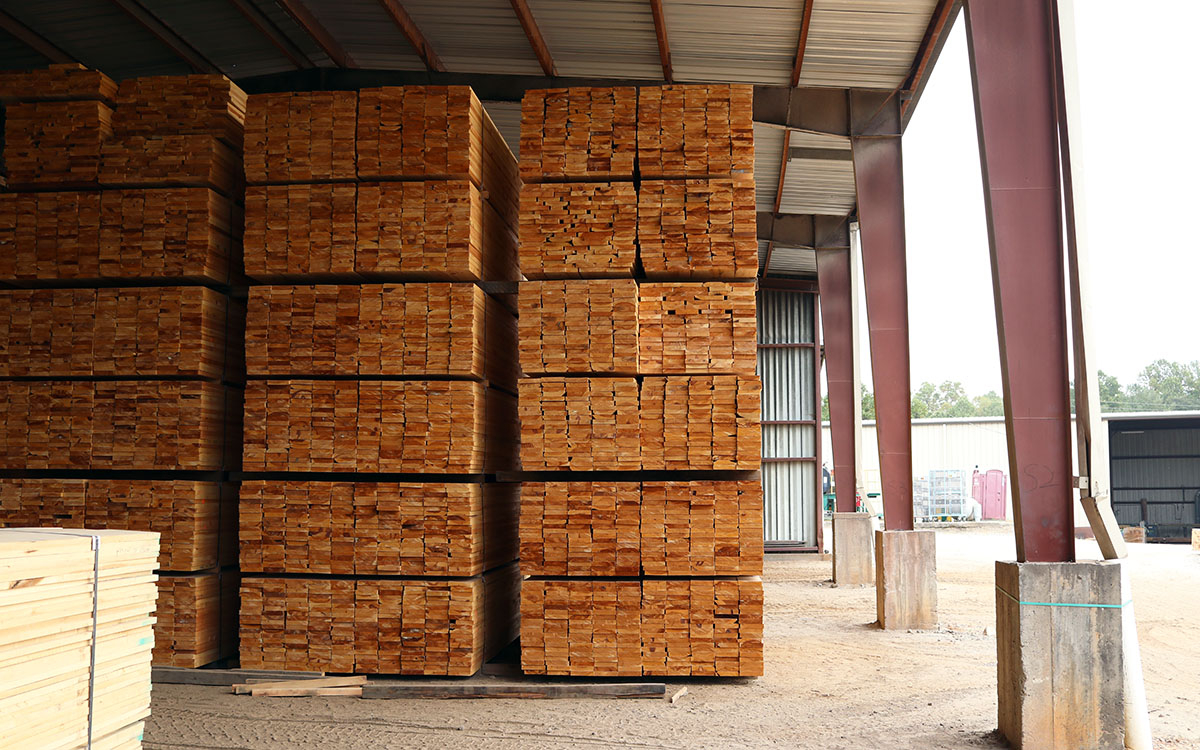What is the Definition and Purpose of a Planer Mill
A planer mill is a facility that specializes in refining rough lumber into finished wood products. While a sawmill cuts logs into boards, a planer mill is responsible for preparing those boards for real-world use. This preparation involves smoothing, trimming, dimensioning, and in many cases, shaping wood into custom profiles such as tongue-and-groove or molding.
You can think of a planer mill as the stage between raw sawmill output and the products that carpenters, contractors, and manufacturers need. Without this step, lumber would be uneven, difficult to work with, and unsuitable for many finished applications. By ensuring accuracy and consistency, planer mills make wood usable across a wide range of industries.
How a Planer Mill Works
1. Surfacing Rough Lumber
Boards fresh from a sawmill usually carry saw marks, rough edges, and irregularities. One of the most important roles of a planer mill is removing those imperfections. Industrial planers shave the surface of each board, creating smooth, flat faces. This process not only improves the appearance but also ensures the wood can be installed or used without additional handwork.
2. Dimensioning Boards
Standard sizes like 2×4 or 2×6 may sound simple, but consistency is critical in construction. A planer mill ensures boards are uniform in thickness and width. This accuracy prevents gaps, uneven walls, or misaligned flooring. For builders, receiving lumber that has already been dimensioned correctly saves hours of labor and reduces mistakes on the job site.
In addition to standard sizing, planer mills can also produce custom dimensions when projects require non-standard specifications. This flexibility is another reason planer mills are vital in today’s lumber industry.
3. Profiling and Millwork
Beyond simple smoothing and dimensioning, many planer mills offer profiling services. This involves shaping boards into more complex forms such as tongue-and-groove flooring, beveled siding, baseboards, or decorative trim.
This type of millwork adds value because it delivers wood that is not only ready to install but also shaped for a specific application. For example, siding with a beveled edge or flooring with a tongue-and-groove profile can be installed much faster and with greater stability than unshaped boards.
4. Sorting and Grading
Once boards are surfaced and sized, they are sorted and graded. Grading ensures that customers receive lumber that meets their project’s needs—whether structural strength, clear appearance, or finish quality. At this stage, boards are bundled according to grade and prepared for shipping. This level of organization helps builders and manufacturers know exactly what they are working with before they begin their projects.
Advantages of Using a Local Planer Mill
A planer mill is not simply an optional step; it’s an essential part of delivering reliable, market-ready lumber. The advantages include:
- Consistency: Uniform dimensions that builders can depend on
- Appearance: Smooth surfaces suitable for visible applications
- Efficiency: Saves builders and manufacturers valuable time
- Customization: Options for specialty profiles and millwork
- Reduced Waste: Boards are optimized and trimmed to reduce material loss
Church & Church Planer Mill Services
Church & Church Planer Mill provides a wide range of services that meet the needs of builders, manufacturers, and woodworking businesses across the region. Our facility is equipped to handle standard dimensional lumber, creating uniform 2×4s, 2×6s, and other construction-ready boards.
We also offer trim, molding, and custom profiles. Whether you need tongue-and-groove flooring, beveled siding, or baseboards, our equipment can produce high-quality finished products designed for quick installation and lasting performance.
Key advantages of choosing our services include:
- Ability to meet large-volume and custom orders
- Consistent quality checks at every stage
- Flexible solutions for contractors, manufacturers, and woodworking shops
- A long-standing reputation in the regional lumber industry
Common Planer Mill Challenges
1. Snipe and End Defects
One common issue in planing is “snipe,” which occurs when the ends of a board are cut slightly deeper than the middle. While it’s a known challenge in the industry, professional planer mills minimize it through precise machine calibration and careful feeding methods.
2. Moisture and Warping
If lumber isn’t properly dried before planing, it may warp after processing. At Church & Church Planer Mill, boards are carefully evaluated for moisture content before being planed, ensuring stability and long-term performance.
3. Equipment Maintenance
Industrial planers rely on sharp blades and well-maintained machinery. Dull knives can cause tearing or uneven cuts. Regular maintenance and sharpening schedules are part of how Church & Church maintains the high quality of its finished products.
Choose Church & Church Planer Mill
A planer mill bridges the gap between rough-sawn lumber and the finished products that builders depend on. Producing smooth, consistent, and accurate boards makes projects easier, faster, and more reliable. From surfacing and dimensioning to profiling and grading, the planer mill is an essential part of the lumber supply chain.
Church & Church Planer Mill provides the high-quality finish that ensures your lumber is ready for use. Whether you need standard dimensional lumber or custom millwork, we deliver products that meet your exact specifications. Contact us today to learn how we can support your next project with precision-planed lumber.
